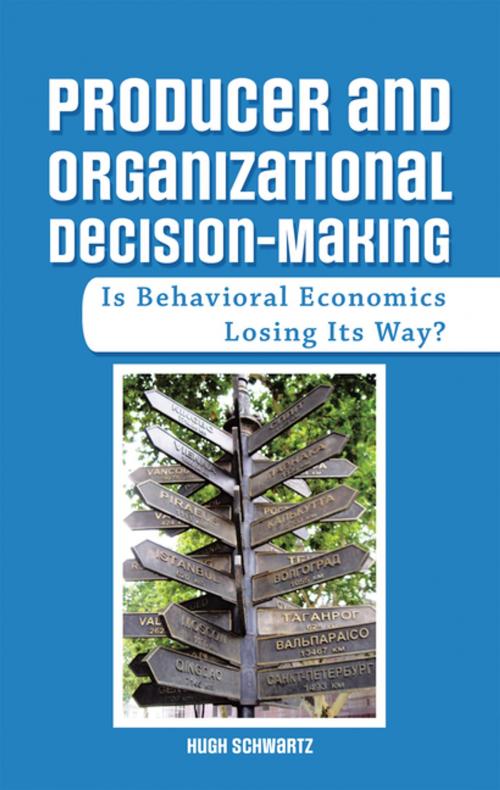Producer and Organizational Decision-Making
Is Behavioral Economics Losing Its Way?
Business & Finance, Economics| Author: | Hugh Schwartz | ISBN: | 9781480862050 |
| Publisher: | Archway Publishing | Publication: | May 2, 2018 |
| Imprint: | Archway Publishing | Language: | English |
| Author: | Hugh Schwartz |
| ISBN: | 9781480862050 |
| Publisher: | Archway Publishing |
| Publication: | May 2, 2018 |
| Imprint: | Archway Publishing |
| Language: | English |
Behavioral economics may be losing its way by basing its analyses essentially on consumers and individuals alone, even though the results are also used to guide producers and other organizations.
Producer and Organizational Decision-Making do not always share the same shortcomings as those of consumers and other individuals, according to Hugh Schwartz.
Consider the achievements of entrepreneurs like Steve Jobs, Elon Musk and Jeff Bezos, whose behavior seems to have been quite contrary to the findings of behavioral economics.
Schwartz argues that we need to examine the behavior of organizations--producers, non-profits and government entities--if we are to understand decisions of society as contexts vary and the size of organizations and their relative importance change.
Join the author as he offers a history, analysis and critique of behavioral economics and some advice, perhaps controversial, on how to revitalize the field.
Behavioral economics may be losing its way by basing its analyses essentially on consumers and individuals alone, even though the results are also used to guide producers and other organizations.
Producer and Organizational Decision-Making do not always share the same shortcomings as those of consumers and other individuals, according to Hugh Schwartz.
Consider the achievements of entrepreneurs like Steve Jobs, Elon Musk and Jeff Bezos, whose behavior seems to have been quite contrary to the findings of behavioral economics.
Schwartz argues that we need to examine the behavior of organizations--producers, non-profits and government entities--if we are to understand decisions of society as contexts vary and the size of organizations and their relative importance change.
Join the author as he offers a history, analysis and critique of behavioral economics and some advice, perhaps controversial, on how to revitalize the field.















